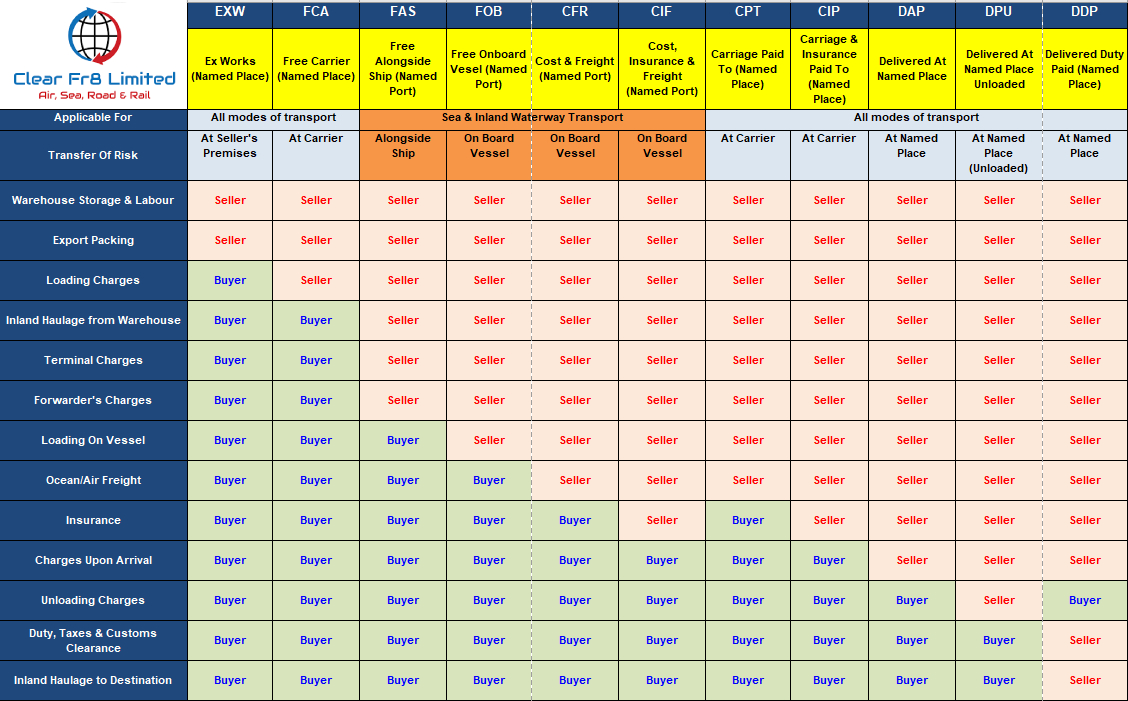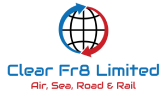Inco Terms 2020

Incoterms are a set of international rules that define the responsibilities and obligations of buyers and sellers in international trade. The latest version of Incoterms, Incoterms 2020, was published by the International Chamber of Commerce (ICC) in September 2019. In this article, we will discuss the key changes and updates introduced in Incoterms 2020.
The first major change in Incoterms 2020 is the replacement of the term DAT (Delivered at Terminal) with DPU (Delivered at Place Unloaded). The new term reflects the increasing use of containerized transport and recognizes that delivery may take place at a location other than a terminal. The term DPU places more responsibility on the seller for unloading the goods at the agreed place of delivery.
Another significant change in Incoterms 2020 is the introduction of security-related requirements for the carriage of goods. The new rules require the parties to cooperate and provide information on the security of the goods during transport, including complying with applicable laws and regulations.
Incoterms 2020 also provides more detailed guidance on the allocation of costs and risk between the parties. The rules now explicitly address the issue of insurance, with the new term CIF (Cost, Insurance, and Freight) requiring the seller to obtain insurance for the buyer's benefit. The rules also clarify the obligations of the parties regarding the carriage of goods, including the selection of carriers and the issuance of transport documents.
Overall, Incoterms 2020 is a useful tool for international traders, providing a standardized set of rules that can help to avoid disputes and misunderstandings. The new version introduces several important updates and changes that reflect the evolving nature of international trade. It is important for businesses to understand and incorporate the new rules into their contracts and agreements to ensure that they are in compliance with international trade regulations and standards.
Inco Terms or Trade Terms are part of the contract of sale and dictate who is responsible in respect of carriage and other charges when buying or selling goods. There are 11 Inco Terms used in the latest edition (2010) and each term shows the risks involved If buying goods, we recommend Free on Board (FOB) terms as it puts the buyer in control of costs and leaves the supplier with the risks and costs for things like Export Licensing, Customs Inspection and Storage. Particularly by sea a lot of suppliers will offer to move your goods for free up to the port of arrival, whilst this seems like a good idea it puts the buyer at risk of getting a large bill from the company controlling the unpacking of container at the arrival port. The best practice is to pay a reasonable amount of freight in return for lower arrival costs.
Ex Works (EXW) - Seller has minimum obligations and the buyer is responsible for all charges from the supplier’s door up to the delivery point
Free Carrier (FCA) – The Seller hands over the goods cleared for Export to the carrier nominated by the buyer at a named place – buyer is responsible for all costs from this point
Free Alongside Ship (FAS) – The Seller delivers the goods (cleared for Export) to the named port of export (does not include the local terminal or warehouse cost) - buyer is responsible for all costs from this point (This can only be used for Ocean/Sea Transport)
Free on Board (FOB) - The Seller delivers the goods (cleared for Export) and when they pass the ships rail (local terminal or warehouse costs included) the buyer takes responsibility for all costs from this point (This can only be used for Ocean/Sea Transport)
Cost and Freight (CFR) – The seller delivers the goods up to a named port of arrival - the buyer takes responsibility for all costs from this point (This can only be used for Ocean/Sea Transport)
Cost, Insurance & Freight (CIF) – As CFR but includes insurance for the goods (This can only be used for Ocean/Sea Transport)
Carriage Paid To (CPT) – The seller delivers the goods (cleared for export) to a carrier nominated by him up to a point the buyer takes responsibility for all costs from this point
Carriage and Insurance Paid (CIP) – As CPT but includes the insurance
Delivered at Terminal (DAT) - Supplier pays all costs (except Import Clearance, Door Delivery, Vat & Duty) up to the terminal which is usually the arrival place.
Delivered at Place (DAP) - Supplier pays all costs (except Import Clearance, Vat & Duty) up to a named place (usually the buyer door)
Delivered Duty Paid (DDP) – Maximum obligation to the seller, seller pay all costs (Except Vat) up the buyer’s door/delivery address.
*** buyers should note that unless the goods are insured you are only going to be covered by the carriers limited liability insurance which is unlikely to cover the value of the goods
